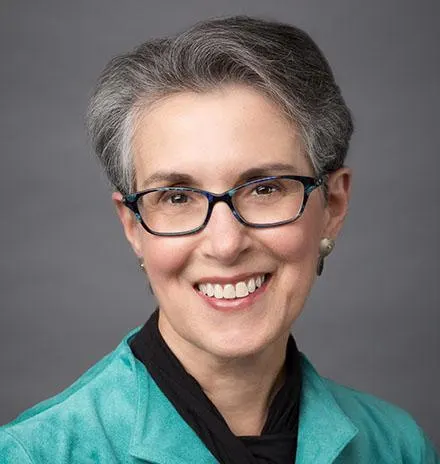Many people struggle to find contentment after finally letting go of a demanding career.
Teresa M. Amabile, the Edsel Bryant Ford Professor, Emerita, at Harvard Business School, explores the complex journey to a satisfying retirement in her new book, Retiring: Creating A Life That Works For You. She and her coauthors offer insights for navigating this sometimes-rocky path, drawn in part from the experiences of 14 professionals the researchers tracked starting in the final weeks and months of their careers and continuing into their first few years of retirement. The team also conducted one-time interviews with 108 additional working and retired professionals ranging from their early 20s to mid-70s.
While more Americans are choosing to work past the typical retirement age of 65, all baby boomers will have crossed that milestone age by 2030, according to government data. How can this generation—wealthier and more tech-savvy than past cohorts—find post-career life satisfaction?
“There is no single best way to retire,” says Amabile, who is currently transitioning to full retirement herself. She says despite that variability, the study did uncover some commonalities, such as “four tasks” that must be faced by everyone in the United States who retires:
Decide when and how to retire.
Fully detach from your work.
Explore and experiment to build a provisional retirement life structure.
Consolidate a stable retirement life structure.
Amabile coauthored the book with Lotte Bailyn, professor emerita at MIT; Marcy Crary, professor emerita at Bentley University; and Douglas T. Hall and Kathy E. Kram, emeriti professors at Boston University. The following interview has been condensed and lightly edited for clarity.
Lane Lambert: Why do so many professionals find it hard to retire?
Teresa Amabile: Let me first clarify that we're talking about people who are reasonably financially secure. Of course, there are many Americans who cannot afford to retire. In our research, we studied only salaried knowledge workers—professionals—at successful companies. They were not in a position where they had to keep working in order to manage their finances.
One of the big surprises of our study was the resistance, even fear, we heard about retiring. Certainly not everyone, but many of the older, age 55-plus people who were still working—even people well into their 60s—hadn’t yet made a retirement decision and said they didn’t want to.
We found a lot of uncertainty, a sense of: I feel like I'm leaping off a cliff into a void. I think that a lot of it has to do with the unknown. They’re staring down the fact that they have had their lives structured by their work for decades, Monday through Friday, and sometimes on the weekends as well. Whether they loved or hated their jobs, they knew what they’d be doing every day.
Their time was structured, and thinking about the disappearance of that structure—part of what we call “life structure” in the book—is very intimidating for some people. They wonder: What will I do with myself? Who am I going to be without my professional identity? And what will happen to my relationships, these people at work I've come to consider close friends? That’s just plain scary for many people.
Lambert: What is the hardest part about being retired?
Amabile: The psychological detachment, the second task of retiring, is the toughest challenge for many people. They have a hard time letting go of that professional identity.
Lambert: Is that task more challenging for executives and senior managers?
Amabile: It can be, but not always. We saw some high-level leaders not having much trouble, but the tendency is in that direction. High-level leaders are more likely to spend more hours a week engaged in their work. They’re deeply invested in it, in terms of the mind space it occupies. So they are more likely to identify with their work, organization, team, and colleagues. And all of those factors can make it more difficult to detach psychologically. But there's a lot of individual variability, and we saw even some high-level people detach easily. They can do that because they feel like they're kind of putting a bow on a good, satisfying career.
Lambert: As you say in the book, “There is no single best way to retire.” Could you share some examples of how to retire well?
Amabile: We saw many different routes to a smooth transition into a satisfying retirement life. I’ll give you three examples, each of which is detailed in the book.
Irene went from working full time, very busy, to no work at all. A longtime tech company employee who was proud of her career, Irene “walked away and never looked back.” She relocated after retiring and happily spent more time with her family, friends, and community activities.
Jay worked half time for six months after he retired from his partnership in a consulting firm, then retired, but continued to do some part-time contract work for the firm for several years.
Bob, an engineer, did a step-down for about a year, working four days a week instead of five. He went through some identity issues when that happened, which really surprised him. Initially, when he was still full time and we asked him, “Would you be more likely to say your work is what you do, or your work is who you are?” he said, “Oh, it's what I do. It's never defined me. I’m a human being, not a human doing.”
But after the step-down, Bob found himself wondering something like, “Oh, my gosh! I feel different. I'm working four days a week instead of five. Does this mean I'm only four-fifths of an engineer now?” He was able to work through that, and when he retired fully, he didn't have problems with the identity issue.
Lambert: Is it important to have a plan for retirement life in advance?
Amabile: I'm going answer that with a story about a retired person we interviewed. He had been a top-level executive in his company's largest division and had known for some years that he was financially set for retirement. He was in his 60s, but he loved his work. He loved the company, he loved his team, and he felt like he was doing important and good work. Then somebody new came in directly above him at headquarters.
He said that this new superior was very negative to him in their first meeting. He was stunned because, for decades, he had always gotten stellar performance feedback from his previous managers. This was a Friday afternoon. He went home and stewed over it all weekend and walked in on Monday and said, “I'm retiring.”
He told me that he had never thought about retirement before that day. He had to give two months’ notice, and for those remaining weeks, he was completely engaged in working with his successor and trying to wrap up a number of projects that he had started. He was still not thinking about retirement life.
When I interviewed him, in his second year of retirement, he was floundering. He was doing a little bit of freelance consulting in the field where he had worked, but he often felt unmoored. He said that he really wished he had thought in advance, maybe even starting years ago, about what life after work would be.
The moral of that story is that, although you don’t have to plan everything, it’s a good idea to plan something.
Lambert: Is there one piece of advice that you would give someone who's thinking about retiring?
Amabile: Work to develop a truly deep awareness of your “self”—who you are now, not who you were at the height of your career. What are your current needs and priorities? And what is your current life structure—your activities, your relationships, where you spend your time?
If your life structure and self are not well-aligned, say to yourself, “I need to be brave and think about what I can proactively address, even if that change means retiring.” And if you are retired, continue that assessment, continue developing that awareness of self and life structure. Continue to find that alignment because things always change.


